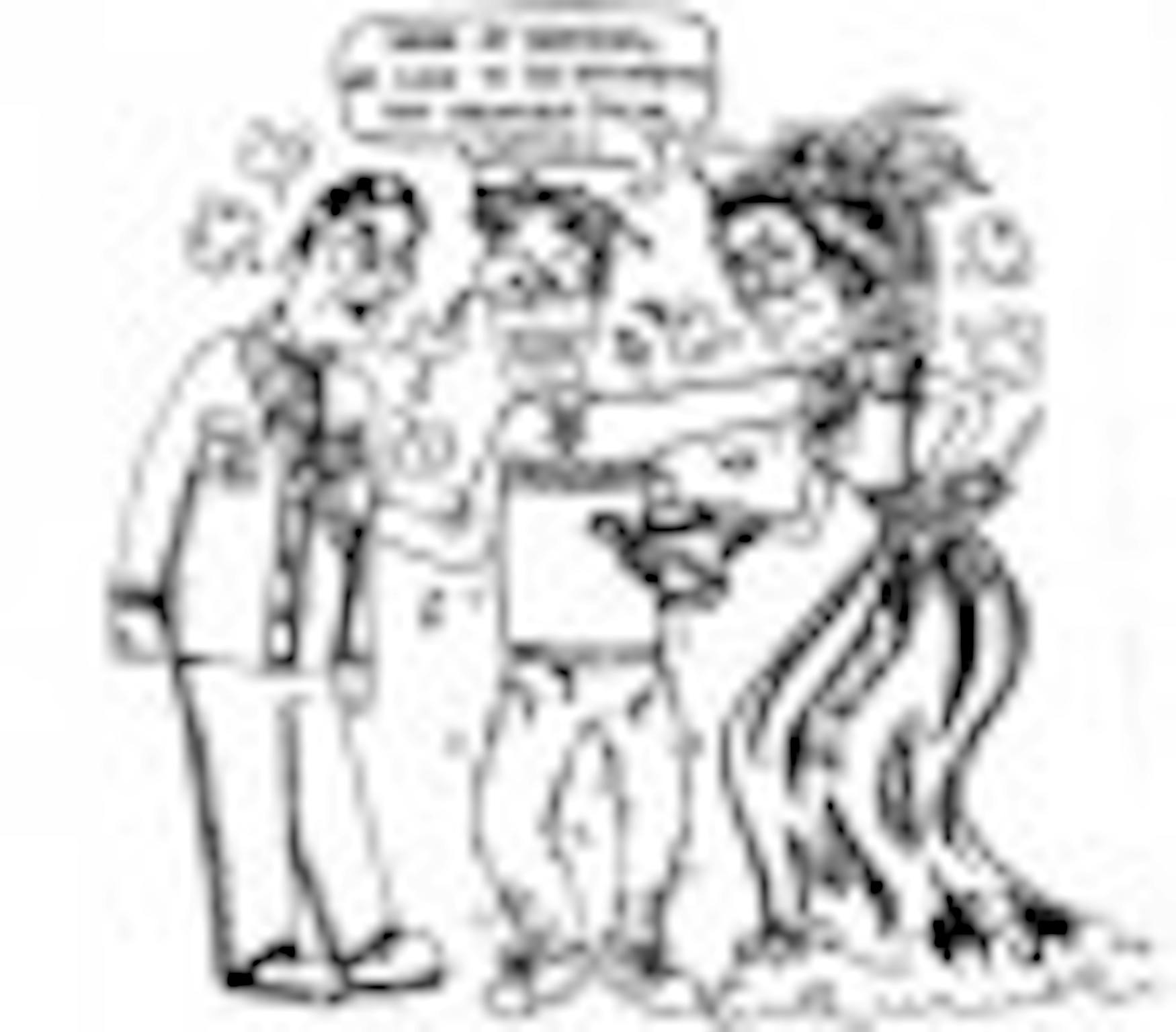Major controversy was absent from radicalism conference
At 10 in the morning this past Wednesday, I was woken up by a text message from my editor. He suggested that, as the Justice's resident conservative columnist, I attend the controversial Conference of Right-Wing Radicalism taking place in the International Lounge later that day. What made the conference newsworthy was its use of a swastika on its promotional poster, which also mentioned that the Tea Party protest movement would be discussed at the conference. This was taken by some, most notably Fox News, as an indication that the conference organizers were drawing a moral equivalence between fascist Nazis and Tea Partiers. Due to the mild uproar over the swastika, the conference organizers removed it from their promotional poster. But Tea Partiers would still be discussed at the conference, and that alone was, for many, controversial enough. So I decided to take my editor's cue and check out the conference to see if the criticism of the conference was truly warranted. It wasn't. After attending the conference, it became clear to me that the controversy of the swastika and the Tea Partiers was more about shallow symbols than substance. The conference began with the conference organizer, Prof. Sabine von Mering (GRALL), apologizing profusely for the use of the swastika on their promotional material, calling it "unwise and inappropriate." This was followed by a panel of academics, who spoke about the generally racist and anti-Semitic extreme right wing in Europe. Next, a second panel discussed the far right in America. The discussion mostly centered around downright crazy groups, like white supremacists and anti-government terrorists. Only the final speaker, investigative journalist Chip Berlet, spoke at all about Tea Parties, and his presentation drew no comparison between Tea Partiers and the crazies of the radical right. Throughout the conference, it was made abundantly clear that, in the words of one of the professors presenting, right-wing movements across the political spectrum were being compared for the purposes of sociological study, not equated. I left the conference sorely disappointed in those who attacked the conference, in those who disrupted the conference during the question and answer session simply looking for a fight and in the conference organizers who bowed to the pressure of those whose focus is graphics rather than substance.
There was no reason for the organizers to remove the swastika. The vast majority of speakers at the conference explicitly dealt with radical right-wing movements that are racist, anti-Semitic and rabidly nationalist. Many of them, such as the National Democratic Party in Germany, are clearly neo-Nazi. The use of a swastika on the poster seemed rather logical to me once I realized that the majority of speakers at the conference would actually be talking about neo-Nazis.
The whole fuss over its use was because the words "Tea Parties" appeared alongside the swastika on the poster. However, for someone, be it a student at Brandeis or a Fox News anchor, to see that and automatically assume that a moral equivalence is being drawn between the two is the very definition of judging a book by its cover. And it represents an intellectual shallowness unbefitting discussion on a college campus.
This shallowness was shared by many of those who participated in the question and answer session at the conference (many of whom, I was sad to see, were fellow Republicans). After listening to a conference in which no outrageous or unreasonable equivalencies were drawn, one questioner asked about one of the panelist's use of the word "tea-bagger" in the past, even though the word wasn't used once throughout the conference. This harping on the use of mildly offensive words represents the same type of intellectual shallowness that led to the criticism of the swastika on the conference's posters. Using the word "tea-bagger" in the past does not disqualify one from speaking about the movement from a sociological perspective. To say that it does is to elevate labels and symbols over substantive discussion and study.
I do not mean to imply that symbols and words are wholly unimportant in political dialogue; they certainly are important. But to allow them to cloud one's judgment and to condemn a conference outright on the basis of a symbol alone is wholly inappropriate.
I am not saying that the conference was flawless. I think that the speakers did a poor job at defining precisely what made the various groups they spoke about right-wing (many of them oppose the laissez-faire capitalism so characteristic of the American right), and the differences between the European and American far-rights were not discussed in depth. But I made these judgments after listening to the content of the discussion throughout the conference. They were not based upon seeing a poster or looking at past incriminating quotes of one of the conference participants.
One of the biggest problems in American political dialogue today is too much dwelling on the use of potentially offensive words or pictures. Both conservatives and liberals have been subject to these types of shallow criticism. Universities ought to stand in stark opposition to that type of shallow thinking, not bow to it. Although the conference itself was both meaningful and intellectually stimulating, the conference organizer's removal of the swastika from their promotional posters was a bow to those who care more about superficiality than substance, and it was wrong.




Please note All comments are eligible for publication in The Justice.